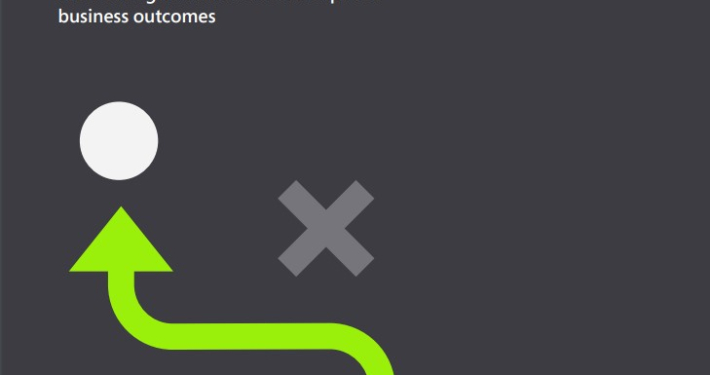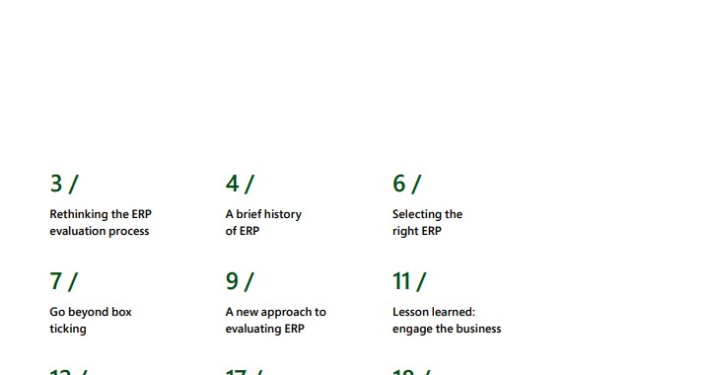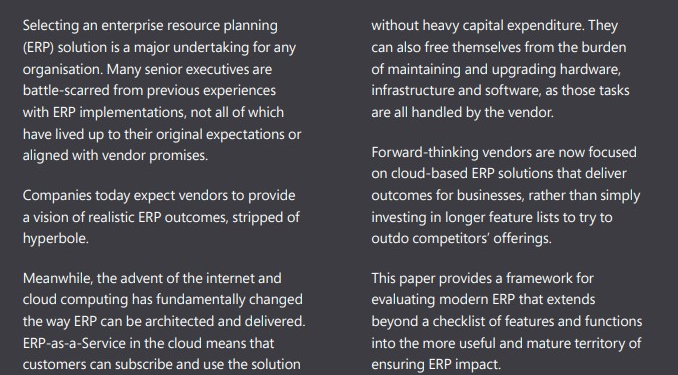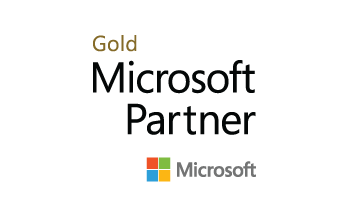A new approach to evaluating ERP
How the right framework can improve business outcomes.
Selecting an enterprise resource planning (ERP) solution is a major undertaking for any organisation. Many senior executives are battle-scarred from previous experiences with ERP implementations, not all of which have lived up to their original expectations or aligned with vendor promises.
Companies today expect vendors to provide a vision of realistic ERP outcomes, stripped of hyperbole. Meanwhile, the advent of the internet and cloud computing has fundamentally changed the way ERP can be architected and delivered.
ERP-as-a-Service in the cloud means that customers can subscribe and use the solution without heavy capital expenditure. They can also free themselves from the burden of maintaining and upgrading hardware, infrastructure and software, as those tasks are all handled by the vendor.
Forward-thinking vendors are now focused on cloud-based ERP solutions that deliver outcomes for businesses, rather than simply investing in longer feature lists to try to outdo competitors’ offerings. This paper provides a framework for evaluating modern ERP that extends beyond a checklist of features and functions into the more useful and mature territory of ensuring ERP impact.
I WANT A FREE EBOOK
Are you searching for how to deliver better and more personalized experiences for your customers and prospects? Download our Ebook to learn more.
I WANT A FREE EBOOK
Are you searching for how to deliver better and more personalized experiences for your customers and prospects? Download our Ebook to learn more.
Selecting an enterprise resource planning (ERP) solution is a major undertaking for any organisation. Many senior executives are battle-scarred from previous experiences with ERP implementations, not all of which have lived up to their original expectations or aligned with vendor promises.
Companies today expect vendors to provide a vision of realistic ERP outcomes, stripped of hyperbole. Meanwhile, the advent of the internet and cloud computing has fundamentally changed the way ERP can be architected and delivered.
ERP-as-a-Service in the cloud means that customers can subscribe and use the solution without heavy capital expenditure. They can also free themselves from the burden of maintaining and upgrading hardware, infrastructure and software, as those tasks are all handled by the vendor.
Forward-thinking vendors are now focused on cloud-based ERP solutions that deliver outcomes for businesses, rather than simply investing in longer feature lists to try to outdo competitors’ offerings. This paper provides a framework for evaluating modern ERP that extends beyond a checklist of features and functions into the more useful and mature territory of ensuring ERP impact.






